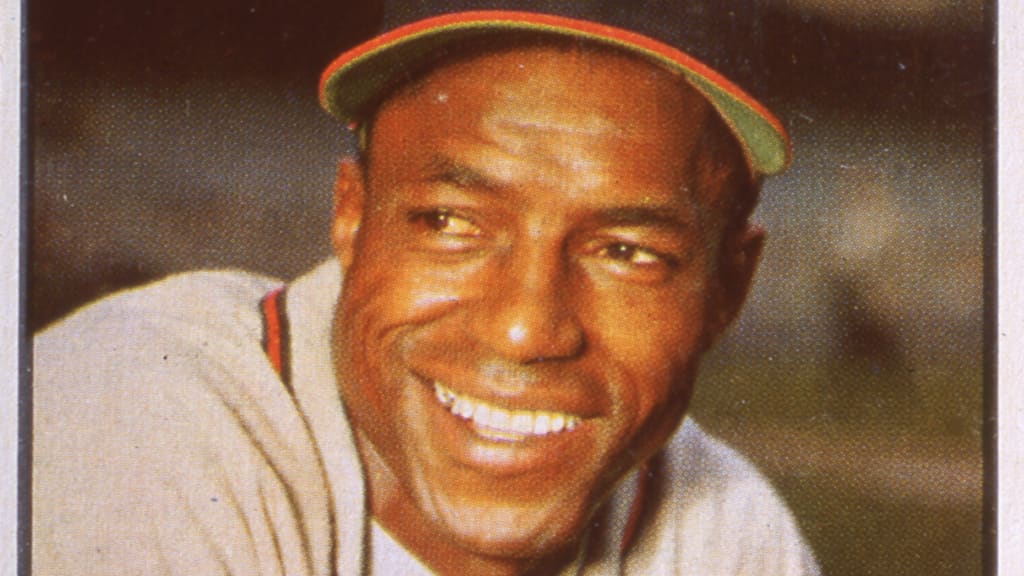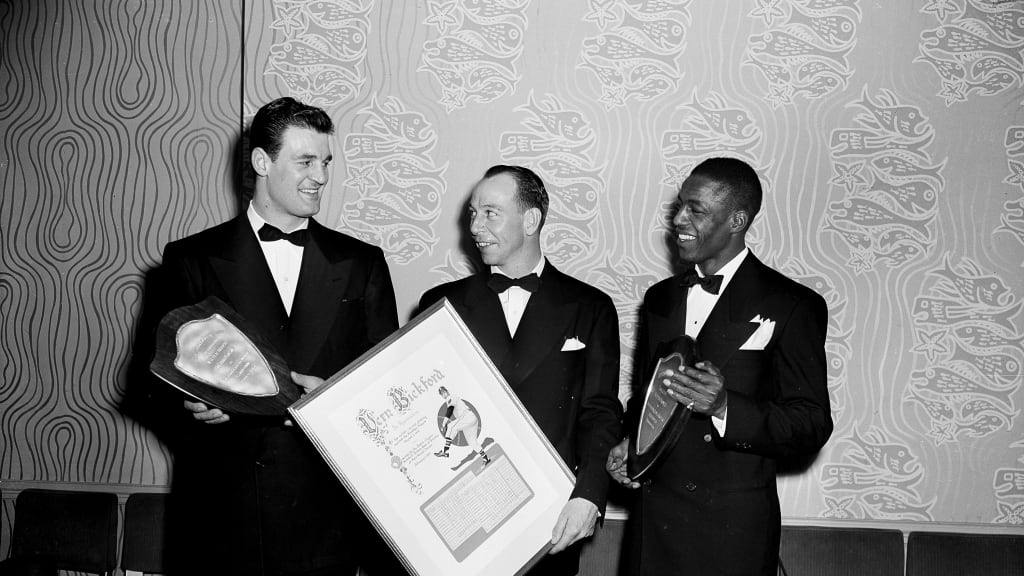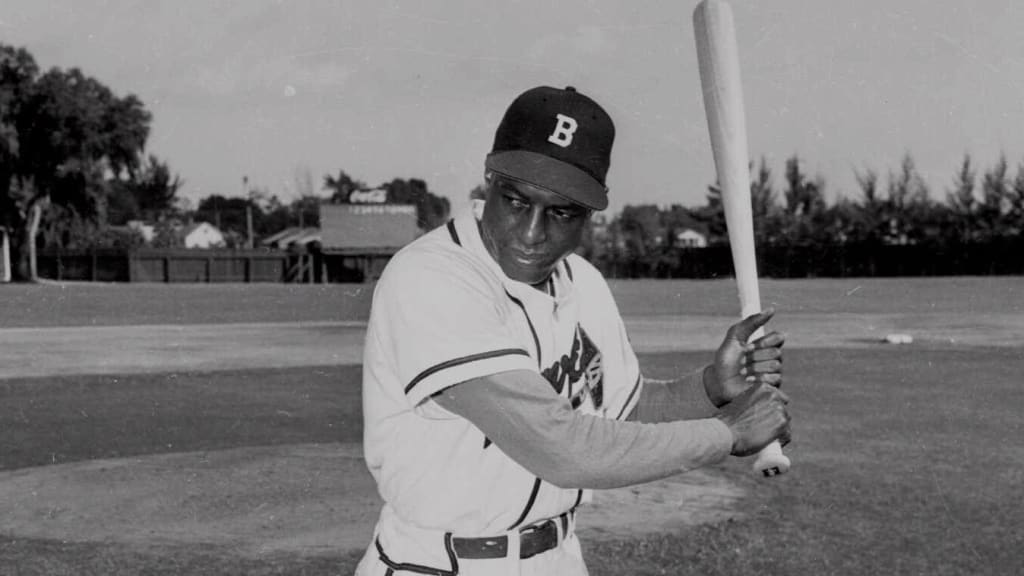
A version of this story was originally published in November 2021.
Sam Jethroe was past his prime in 1950. Or at least, he should've been by baseball standards.
The Mississippi native was 33 years old, a few years past the age when the average player retires. Some of his peers had been in the league for seven years or 10 or even 13.
So, how did he end up winning Rookie of the Year?

Jackie Robinson didn't integrate the big leagues until 1947, and teams were slow in signing Black players onto their rosters during those first few years. Still, Jethroe, simply known as "The Jet," had the star-filled Negro Leagues -- where he lit up the competition.
He joined the Indianapolis Clowns at the age of 21 and then patrolled the outfield for the Cleveland Buckeyes for five seasons. He hit .385 in 1944, .329 in '45, made four All-Star teams and was near the top of the league in RBIs, runs and triples on numerous occasions. He was part of some legendary squads:
But his speed is what really caught the attention of fans and scouts: He once stole a base in 11 straight games, infielders would take a few steps in to be able to throw him out at first and one manager was so fearful of him swiping bases that he went to desperate extremes. Via SABR's Bill Nowlin:
Buffalo manager Paul Richards, Bob Dolgan wrote, “was so fearful of leadoff man Jethroe’s speed, he would intentionally walk the pitcher in front of him, blocking Jethroe’s running.”
Don Newcombe called him the fastest human he'd ever seen and teammates said he could "outrun the word of God."
In 1949, Jethroe's 60-yard sprint time was clocked at 5.9 seconds -- a world record at the time. Herb Washington, a "designated runner" for the A's in the 70s, is the fastest ever at 5.8. Jethroe even beat Olympic gold medalist sprinter Barney Ewell in an exhibition race at one point.
With his exceptional play and on-field reputation, Jethroe nearly got a shot at MLB earlier than he did. The All-Star was invited to the famous Fenway Park 1945 tryout with Jackie Robinson and Marvin Williams -- an event urged on by sportswriter Wendell Smith. Jethroe impressed with his speed, but the Red Sox unfortunately declined adding any of the Negro Leaguers to their roster.
"They did what they said they would, but I was disappointed in the reaction," Smith said afterwards.
And in '47, Branch Rickey reportedly interviewed Jethroe along with Robinson to be the first Black player to break the color barrier. Rickey ended up going with Robinson, and Jethroe figured why that might've been the case.
“He had everything Mr. Rickey wanted,” Jethroe said, “He was a college man who had experienced the white world, and I wasn’t.”
Still, Jethroe was signed to the Montreal Royals -- the Dodgers' Triple-A affiliate -- for the '48 and '49 seasons. Here, he showcased his skills once again: Batting leadoff, he led the entire International League with 19 triples and 207 hits in his second season. He set a record with 89 steals and slashed at a .326/.403/.520 rate. Robinson had helped the Royals to a championship in '46, but Jethroe, who did the same in '48, became known as "the man who made Montreal forget about Jackie Robinson."
With Duke Snider in center field, the Dodgers had no room to bring up their new, veteran star, so they traded him to the Boston Braves for $100,000. The Braves put him on the big league roster in '50 and he became the team's first Black player, and the league's 12th overall. Although Jethroe won Boston fans' hearts over with his unbelievable speed, his defense was a bit underwhelming. He had a weak arm and sometimes struggled tracking fly balls. After one drop during a night game, Jethroe joked that he lost it in the moon.
Many Black players were viciously tormented in their first seasons with their clubs, even by their own fans and teammates. Jethroe reportedly didn't feel that during his time with the Braves, or at least he didn't talk about it.
“I was lucky,” Jethroe recalled. “Everywhere I went I seemed to have the fans on my side. They kidded me about my fielding but I didn’t have rabbit ears. The fans could say what they wanted. The only confrontations I had were on the playing field.”
There was a mutual love with his hometown fans.
“I loved the Boston fans,” Jethroe said nearly 50 years later. “They used to chant, 'Go, go, go,' every time I got on base. Never had a problem in Boston.”

The newly acquired outfielder took that support and thrived in his first season with the Braves. He scored 100 runs, led the NL with 35 steals, clubbed 18 homers and put up a .273/.338/.442 slash line. He even led baseball in outfield assists (but also outfield errors). He was awarded the Rookie of the Year Award -- six points ahead of Phillies pitcher Bob Miller (who was 10 years his junior).
Jethroe had a better season in 1951, but then, after undergoing offseason intestinal surgery, his performance tailed off. He played one more year with the Braves, played two games with Pittsburgh in '54 and bounced around the Minors until he left pro baseball altogether in '58.
After his playing career ended, Jethroe opened a successful bar in Erie, Pa. But after a bad fire, he ran into some financial troubles and, unfortunately, wasn't able to get any pension help from Major League Baseball (A player had to have a service time of four years, while Jethroe had 3 years and seven days). A group of owners, led by Jerry Reinsdorf, decided to create a fund for Jethroe and other former Negro League players -- instituting annual payments of $7,500-$10,000.
“I can’t tell you how appreciative I am of what [the owners] have done,” Jethroe said later in life.
So yes, Sam Jethroe is the oldest Rookie of the Year winner in baseball history -- a year older than honoree Kazuhiro Sasaki was for the Mariners in 2000. And although he wasn't able to play in MLB until late in his career, for a decade before playing in towns throughout the Negro Leagues and during winters in the Caribbean, everybody already knew he was one of the best, and definitely the fastest, whenever he stepped on a field.
(h/t to SABR for their in-depth research.)
